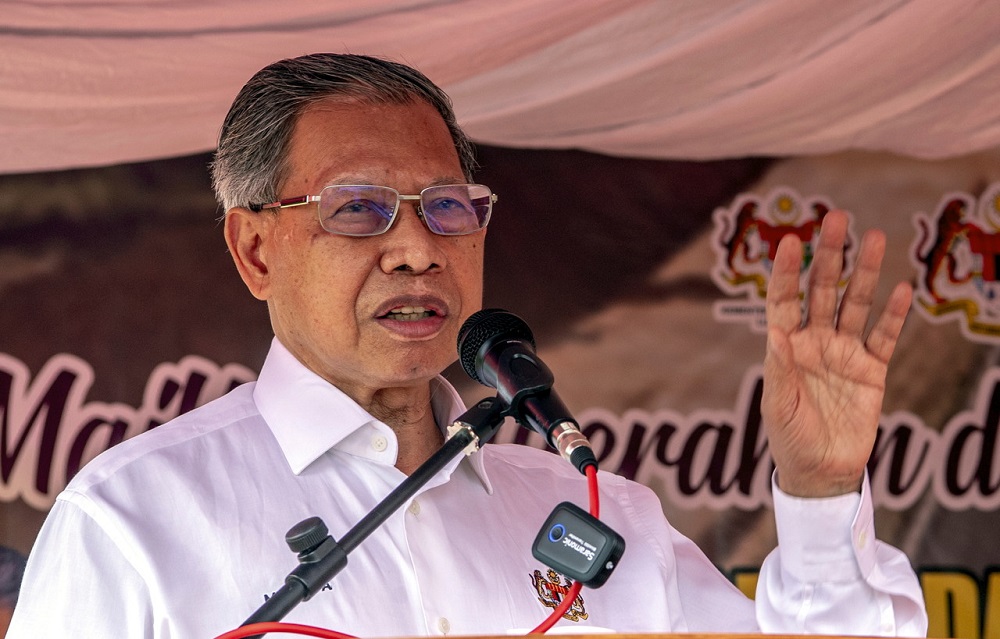KUALA LUMPUR, March 9 ― The government may be releasing the details on its 2050 net-zero emissions target this year, said Minister in the Prime Minister’s Department (Economy), Datuk Seri Mustapa Mohamed.
He said the government is currently developing the framework, which includes exploring the introduction of a voluntary carbon market and carbon pricing mechanism such as carbon tax, as well as the expansion of green technology tax incentives.
He also added that the Environment and Water Ministry (KASA) is in talks with Bursa Malaysia Bhd on carbon trading.
‘’The details will be out hopefully sometime this year, and that should give us a clearer picture,” he said in a speech during the MIDF Green Conference, titled ‘Beyond the Blah Blah Blah’ today.
Mustapa said the government has set a target of 30 per cent renewable energy installed capacity for the power sector by 2025.
“The government is also committed to fulfilling our promise during the 1992 Rio Earth Summit to keep 50 per cent of the nation’s land area under forest cover.
“The government also envisage Malaysia to be the regional Sustainable and Responsible Investment (SRI) hub as we expect to reap the benefits of increasing demand in SRI products,” he said.
Mustapa said Malaysia is aware of the challenges that lie ahead in terms of its transition towards a lower carbon footprint.
“A number of developed nations are transitioning towards greener energy sources at a fairly rapid pace while many developing nations are still relying on carbon-heavy industries.
“To enjoy the benefits of a low carbon path, developing nations such as Malaysia must accelerate its transition to a greener future,” he said.
The minister said the government had implemented the Renewable Energy Act a decade ago as an initiative to encourage the development of the renewable energy sector.
In December 2021, Bank Negara Malaysia released the Exposure Draft on Climate Risk Management and Scenario Analysis, which sets out expectations to enhance financial sector resilience against climate-related risks.
The Securities Commission Malaysia had also released a consultation paper on SRI Taxonomy for the local capital market to identify economic activities that are aligned with environmental, social and corporate governance (ESG) objectives.
“There have been some positive developments in terms of our ESG compliance as companies have started to realise the importance of ESG,” he said.
This can be seen from the rise in the number of companies listed in the FTSE4Good Bursa Malaysia Index which only includes companies that meet certain ESG criteria.
The number had increased from just 24 companies at its inception in 2014 to 80 companies as of December 2021.
In 2021, global investments in ESG/sustainable mutual funds and Exchange Traded Funds rose by 53 per cent to US$2.7 trillion. ― Bernama



















